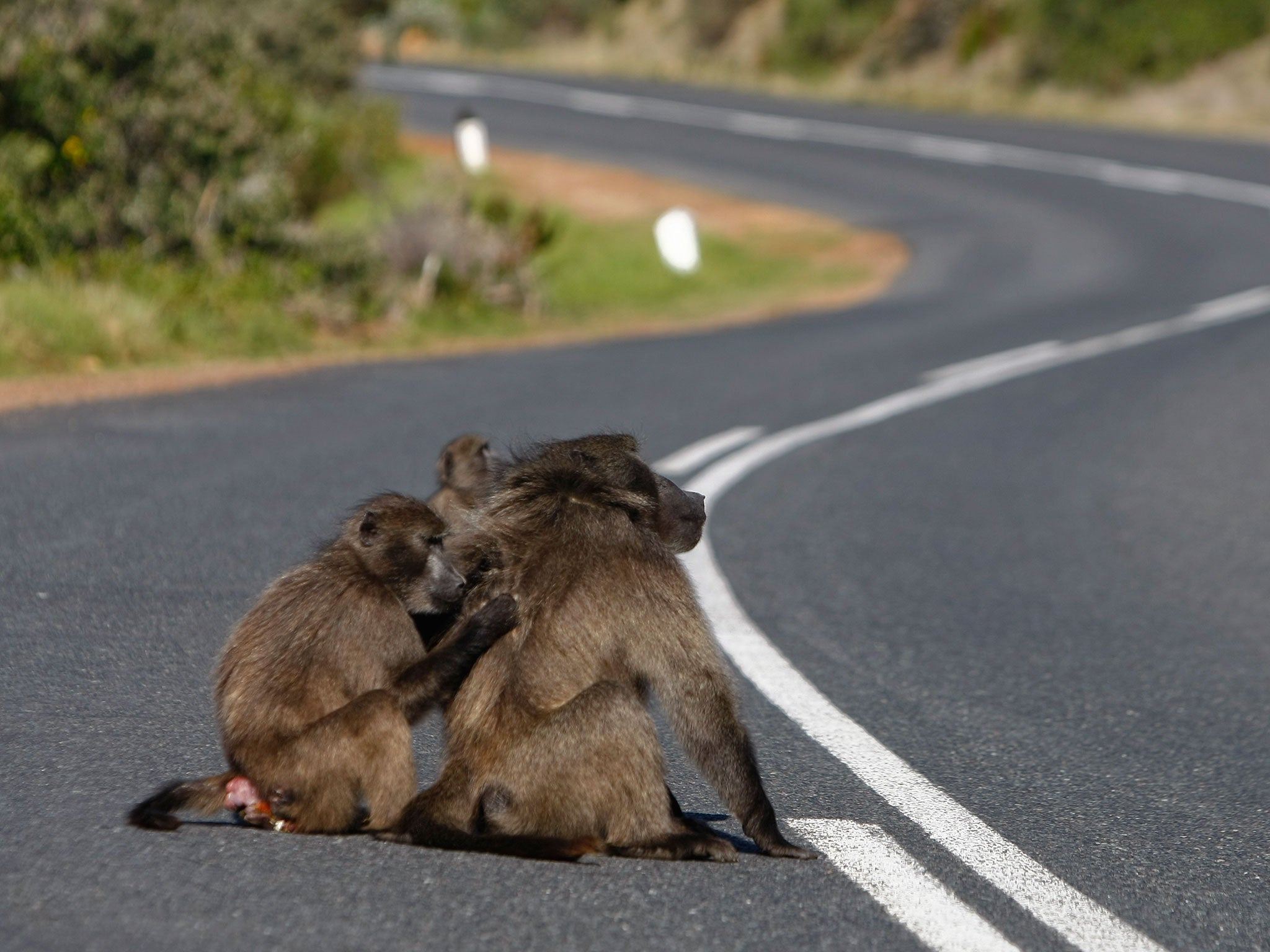Baboons are aping humans in their social interactions, study finds
The animals hang out with those of similar age, rank and personality

Your support helps us to tell the story
From reproductive rights to climate change to Big Tech, The Independent is on the ground when the story is developing. Whether it's investigating the financials of Elon Musk's pro-Trump PAC or producing our latest documentary, 'The A Word', which shines a light on the American women fighting for reproductive rights, we know how important it is to parse out the facts from the messaging.
At such a critical moment in US history, we need reporters on the ground. Your donation allows us to keep sending journalists to speak to both sides of the story.
The Independent is trusted by Americans across the entire political spectrum. And unlike many other quality news outlets, we choose not to lock Americans out of our reporting and analysis with paywalls. We believe quality journalism should be available to everyone, paid for by those who can afford it.
Your support makes all the difference.Baboons prefer to hang out with counterparts of a similar age, rank and even personality type, according to a new study indicating that their social preferences may hold their troops back from sharing information.
A team of researchers from the University of Cambridge and the Zoological Society of London studied two troops of chacma baboons and discovered a strong incidence of homophily, or “love of the same”, which meant younger and bolder animals tended to avoid much contact with shier ones.
“This happens to human beings all the time; we hang out with people who have the same income, religion, education and so on. Essentially, it’s the same in baboons” said one of the study’s authors, Dr Alecia Carter, of the University of Cambridge.
However, the creatures’ “narrow-mindedness” slows the transfer of new social information – such as new foraging techniques – to the wider troop, meaning it does not benefit the broader community, according to the research, published in the journal Royal Society Open Science.
Join our commenting forum
Join thought-provoking conversations, follow other Independent readers and see their replies
Comments